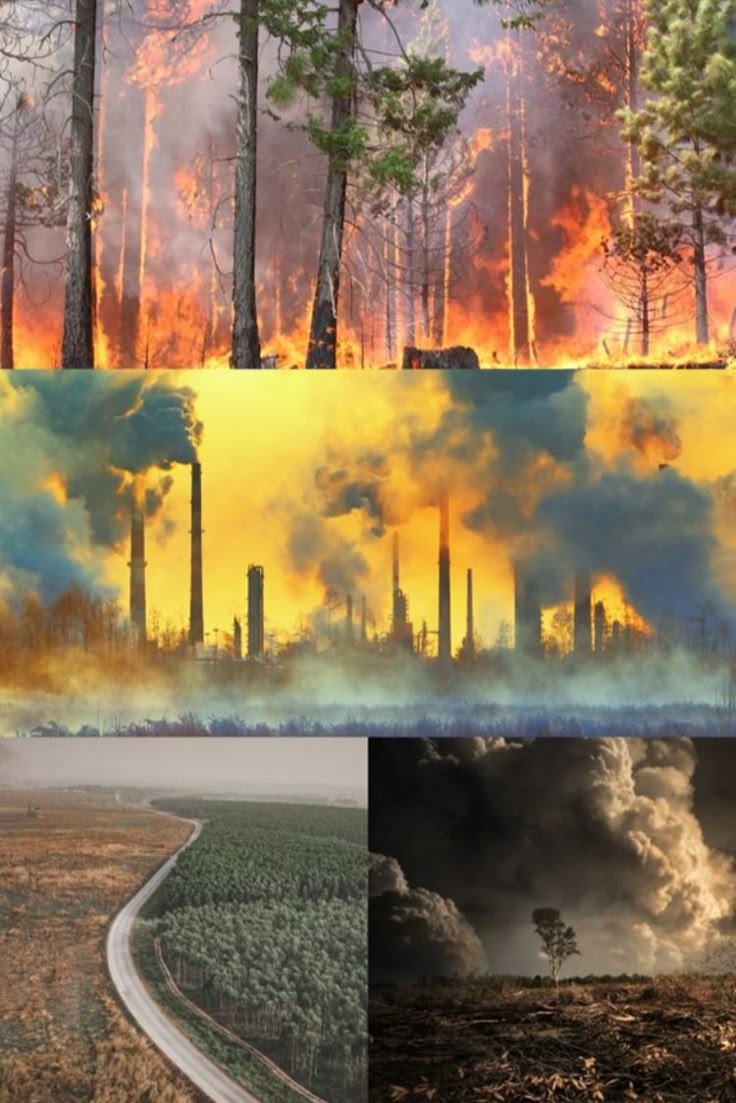Introduction: The Ocean’s Vital Role in Earth’s Climate
Oceans cover over 70% of the Earth’s surface and play a crucial role in regulating the planet’s climate. Acting as a massive heat reservoir, they absorb much of the sun’s energy and store carbon dioxide, helping to stabilize global temperatures. However, climate change is increasingly disrupting this delicate balance, reshaping the oceans in ways that have profound impacts on marine ecosystems, coastal communities, and the global climate system itself.
Rising Ocean Temperatures: Heating Up the Blue Planet
One of the most visible impacts of climate change on oceans is the increase in sea surface temperatures. Warmer oceans affect marine life directly by altering habitats and reproductive cycles. Coral reefs, which are highly sensitive to temperature changes, experience bleaching events when waters become too warm, losing their vibrant colors and vital ecosystems. Additionally, many fish species are migrating to cooler waters, disrupting traditional fishing zones and threatening food security for millions.
Ocean Acidification: The Silent Threat
As atmospheric carbon dioxide levels rise, a significant portion dissolves into the ocean, causing ocean acidification. This process lowers the pH of seawater, making it more acidic. Acidification poses a severe threat to calcifying organisms like corals, shellfish, and certain plankton species, which rely on carbonate ions to build their shells and skeletons. Without these organisms, the marine food web could collapse, affecting species all the way up to large predators and humans.
Melting Polar Ice and Sea Level Rise
Climate change is causing polar ice caps and glaciers to melt at unprecedented rates, adding freshwater to the oceans and contributing to sea level rise. Rising seas threaten low-lying coastal areas worldwide, increasing the risk of flooding, erosion, and habitat loss. Coastal wetlands and mangroves, crucial for protecting shorelines and supporting biodiversity, are at risk of disappearing. This reshaping of the ocean’s edge has serious social and economic consequences for millions of people living near the coast.
Changes in Ocean Currents and Circulation Patterns
The ocean’s currents act as global conveyor belts, distributing heat and nutrients around the world. Climate change is disrupting these patterns, especially in critical systems like the Atlantic Meridional Overturning Circulation (AMOC). A slowdown in these currents can lead to more extreme weather events, altered rainfall patterns, and shifts in marine ecosystems. These changes highlight the interconnectedness of the ocean with the broader climate system.
Impact on Marine Biodiversity
The combined effects of warming, acidification, and changing currents are reshaping marine biodiversity. Species are shifting their ranges toward the poles or into deeper, cooler waters. Some marine animals may face extinction if they cannot adapt or migrate fast enough. The loss of biodiversity threatens the resilience of ocean ecosystems, reducing their ability to recover from environmental stress and continue providing essential services like carbon storage and oxygen production.
Coral Reefs: Canaries in the Climate Crisis
Coral reefs are among the most vulnerable ecosystems to climate change. Increased water temperatures cause coral bleaching, where corals expel the symbiotic algae they rely on for energy. Prolonged bleaching leads to widespread coral death, disrupting habitats for thousands of marine species. Efforts to protect and restore reefs include reducing local stressors like pollution and overfishing, as well as researching coral species that may be more heat-resistant.
Ocean Deoxygenation: An Emerging Concern
Warming waters hold less dissolved oxygen, leading to ocean deoxygenation. This reduction in oxygen availability can create “dead zones” where marine life struggles to survive. Deoxygenation affects fish behavior, reproduction, and survival rates, further stressing marine ecosystems already challenged by other climate impacts. The expansion of hypoxic zones threatens fisheries and biodiversity hotspots.
Socioeconomic Consequences for Coastal Communities
Millions of people depend on oceans for food, livelihoods, and cultural identity. Climate-driven changes in fish stocks, coral health, and coastal environments directly impact fisheries, tourism, and coastal infrastructure. Vulnerable communities, particularly in developing countries and small island nations, face increased risks from storms, flooding, and resource scarcity. Adaptation strategies are urgently needed to help these populations cope with ongoing ocean changes.
The Role of Ocean Science and Monitoring
Understanding how climate change reshapes our oceans requires extensive scientific research and monitoring. Satellites, autonomous underwater vehicles, and long-term observation stations provide crucial data on ocean temperature, chemistry, currents, and ecosystems. This knowledge helps predict future changes, guide conservation efforts, and inform climate policy. International collaboration is key to addressing the global nature of ocean challenges.
Mitigation and Adaptation Strategies
To protect oceans from the worst impacts of climate change, reducing greenhouse gas emissions is essential. Transitioning to renewable energy, enhancing energy efficiency, and adopting sustainable land-use practices can slow warming and acidification. Additionally, protecting marine habitats through marine protected areas, restoring coastal ecosystems like mangroves, and supporting sustainable fisheries help increase the ocean’s resilience. Community involvement and indigenous knowledge are vital for successful adaptation.
Conclusion: A Call to Action for Our Oceans
The reshaping of our oceans by climate change is one of the defining environmental challenges of our time. It threatens not only marine ecosystems but also human societies dependent on the sea. Addressing these challenges requires urgent, coordinated action across governments, scientists, industries, and communities. By understanding and responding to how climate change impacts the oceans, we can work toward preserving the health and vitality of our blue planet for future generations.




